- Home
- Harry Harrison
Return to Eden e-3 Page 17
Return to Eden e-3 Read online
Page 17
“Then this child — my granddaughter?”
“She must be. I must talk to her. She never told me, but she must know her father’s name.”
At first Darras did not know what was happening, could not understand it. Only when the relationship had been explained over and over again, often enough to make it clear to her, only then did the long-hidden tears come as she clung to her grandmother and wept.
“You will live with me,” Merrith said, “if that is what you want to do. If Armun says it will be all right.”
“She is your daughter’s daughter. She is yours now. You must put your tent close by so we can be together always.”
Her tears changed to laughter and Armun joined in and, after a little while, even Darras managed to smile through her tears.
The days that followed the arrival of the sammads were the happiest that Armun had experienced in her entire life. The murgu who had fought against them fought no longer, they did not have to be considered or feared. The coming of the sammads had changed life completely on the island. The tents stretched away under the trees and smoke rose from many cooking fires. Children ran and screamed between them and their cries were echoed by the trumpet of the mastodons from the field. Game was abundant, their stomachs were full — while the dried meat hung heavy in the smoking huts. A large hardwood tree had been cut down, trimmed of its branches and floated to the shore near the tents. Here, under Herilak’s direction, it was being hollowed out by fire. When it was finished they would have a boat to go into the marshes with, to trap the feeding birds that now had grown very wary of the hunters. Arnwheet and the other boys of the sammads had watched this being done and were now hard at work making a smaller version for themselves. There were some burned fingers and tears, but the work progressed.
In her newfound happiness Armun realized how much better off they all were for the joining of the sammads. Herilak had come and spoken to Ortnar, and while none had heard what was said it was clear that the rift between them was closed, the bond restored. Ortnar’s tent was now beside the sammadar’s and he sat next to the fire in the evenings with the other hunters, even managed to laugh with them. He no longer talked of going alone into the forest.
Now, when he wasn’t working on the boat, which was a sporadic thing indeed, Arnwheet was playing with the other boys his own age: Harl went with the hunters. Life was as it should be and she was very happy. She sat in the sun before her tent, the baby kicking and crowing on a soft skin laid in the grass before her. Malagen knelt and watched her with wide-eyed pleasure.
“May I pick her up?” she asked, speaking Sesek. Armun could still remember the language; it was the greatest pleasure for Malagen to hear it and speak it again. She cradled Ysel in her arms, the baby’s fair hair a contrast to her dark skin. She never ceased being amazed by it. “And her eyes, look, as blue as the sky! I have made something for her, it is here.”
She reached inside her clothing and took out a length of dark ribbon which she passed to Armun. “When her hair grows longer you can use it to tie about her head, in the Sasku manner.”
Armun ran her fingers along it with admiration. “It is so soft, but it is not the cloth you weave — what is it?”
“It is something very important and I will tell you about it. When we left the valley I brought my loom, you have seen it, and I have woven the charadis fibers into cloth. But none of the charadis is left, I have used it all up. Then I looked at your waliskis and when they permitted I touched them. This was very wonderful.”
Armun nodded agreement. She knew that waliskis, the Sesek word for mastodon, were somehow very important to the beliefs of the Sasku. Malagen could sit happily for the entire day and admire them.
“I touched them and they let me brush them and they liked that. Then I discovered that when they were brushed some hair came off and I saved it for it is very precious. Then one day I twisted it, as we do with the charadis fibers, and discovered that it might be possible to weave into cloth. And I did! And this is it.” She laughed and leaned close to whisper. “I made the headband to bring to the manduktos one day. But I can make another. And this is so small. I think it will be better now for Ysel.”
The Sasku could do many things and Armun was very glad that Malagen was here. Malagen had searched the island, then made Newasfar go with her to the mainland before she found the right kind of clay she needed. The hunters would not help the women with the work, but they at least stood guard against wild creatures when they went to dig the clay. The women had loaded Merrith’s mastodon and returned with baskets of it. Now a proper oven was being built and soon they would have the hard-as-stone pots to use, just like the Sasku.
So many things were happening that Armun no longer minded when Kerrick went to see his marag. She noticed that he went alone most times, that Arnwheet was busy with the other boys, and that pleased her very much although she did not say it out loud. Kerrick was her hunter and he could do things that no other hunter — or sammadar — could do. One thing he could do was talk with the murgu. If he had not talked to that one on the island when they killed the big sea beasts, none of this would be taking place. All of the sammads would be dead. Everyone now knew what he had done, and how he had done it, and they never tired of hearing her tell about it. And about the Paramutan, and crossing the entire ocean, and all of the other things that had happened to them. They listened in respectful silence when she spoke, and not only because Kerrick was her hunter but because she had done these things herself. She no longer hid her cleft lip from sight — nor even thought about it. Life was full, the sun was warm, the endless summer far better than the endless winter had been. Some of the women talked about the snow, and the berries you could find only in the north and other things. She listened but did not speak herself for she had no desire to see any of these things ever again.
Kerrick saw this change in Armun, did not question it but accepted it with gratitude. It had not been a very happy sammad before the others had arrived. A lame hunter, a sad little girl, and two boys too different in age to really enjoy each other’s company. All this had changed. Darras was with her grandmother now, smiling and talking for the first time; she seemed to have finally forgotten the death of her own sammad. Kerrick just wished that Arnwheet was not so busy with his friends, that he could find the time to talk with Nadaske. Not that he went that often himself. It had been many days now since his last visit, so many days that he had forgotten just how long. This was no way to treat a friend. He cut a leg from the freshly killed deer that hung from the tree behind the tents, took his hèsotsan and walked the well-trodden path towards the ocean. He saw no one when he crossed the channel and made his way across to the smaller island. On the crest he looked out to sea, empty as always. The Yilanè kept to their city as Lanefenuu had promised. If he had brought the sammad here sooner, left Round Lake earlier, they would never have met the Yilanè hunters. And Imehei might still be alive. He shook his head to dislodge the thought. It was not worth thinking about: the past could not be changed. As he came through the brush he called out attention-to-speaking.
The shelter was there but it was empty. The hèsotsan was missing so perhaps Nadaske had gone hunting. Kerrick found some freshly cut leaves inside and put the meat on them. When he came out he found Nadaske waiting there. Kerrick curved his hand in appreciation.
“Nadaske is the forest creature who moves as silently as the wind. Were you hunting?”
“No. Hearing sounds of walking I went to place of hiding.” He put his hèsotsan inside and saw the meat. “Sweet flesh of dead animal magnified many times better than fish. Gratitude to efensele.”
“I will bring some more again soon — but many things have been happening, it has been very busy. But why were you hiding? Playing a game from the hanalè?”
Nadaske’s mouth was too full of meat to answer at once; he chewed enthusiastically and finally was able to swallow. “Ten times ten times more pleasurable than fish. A hanalè game, yes we did play them
. Boring/stupid. It is hard to think of that life now — or why we thought it had any pleasure. No, not a game. But small ustuzou have been here, threatening death-by-stone-tooth. Now I watch and hide.”
“They were here? Who, hunters like me?”
“No, not large ustuzou, but small like little/soft, or perhaps larger.”
“Some of the boys, that’s who it must have been. Did they attack you with their spears, throw them?”
“Shout and wave weapons, run away into trees.”
“I’ll take care of that,” Kerrick said grimly. “They know that they are forbidden to come here. They think they are very bold — but we will see about that. It won’t happen again.”
Nadaske worried the bone with his teeth, eating every fragment. He swallowed, gulped and signed sweetness of meat, sweetness of life. Kerrick was thinking about the boys, how to make sure the incident was not repeated, and it took a moment to understand what Nadaske was saying. With Tanu all about him now, the world of Yilanè was growing distant and alien. The great jaw and shining skin of Nadaske were so different from the Tanu. And the way he held the bone between opposed thumbs. A motion caught Kerrick’s eye and he saw a lizard dart across the clearing. Nadaske dropped the bone and the lizard stopped when it saw the motion. Still as a carving, motionless — just like Nadaske. They were equally different, equally alien.
“Something else occurred,” Nadaske said and the moment of strangeness was gone. This was Nadaske, his friend.
“What was that?”
“There was an uruketo.”
It was as though a chill wind had passed over him. “No! Here? Did they come ashore?”
“Negative-negative. It was out in the ocean, not near shore. It went north, then the next day came back in the other direction.”
“The same one?”
“Assumption positive, evidence negative.”
The sudden fear was ebbing. The Yilanè had not come ashore, it had nothing to do with the sammads. Of course there were uruketo in the ocean. But as long as the sammads stayed away from the shore there was nothing to fear. Yet it was like an omen, the same as seeing two black birds at the same time which meant there would be bad luck that day, that is what Armun said. That and never putting a knife down with the point towards you, also bad luck. He did not believe in omens.
“Have you seen uruketo before?”
“Once far out to sea.”
“I don’t think that we have reason to be alarmed. Alpèasak is south of us, along the coast. Uruketo, boats for fishing, they all use the port. As long as they don’t come ashore.”
“They won’t.” Nadaske moved a thumb in the direction of his teeth in the expression that means once bitten, you avoid the creature that bites. “The eistaa who cares for uruketo will remember the two dead on the shore. They stay in the city, we stay here, plenty of food for all.”
“You must be right. But it is hard to think that peace is ever possible between Yilanè and ustuzou.”
“There is peace between us. Probably because we are males; females cause all ills in world. Beware your females.”
Kerrick signed agreement and awareness. He had given up trying to explain the relationships of the Tanu sexes. Nadaske would never believe that he wasn’t following Armun’s instructions. “Time to return,” he said, climbing to his feet.
“Query of interest, desire Kerrick to see hèsotsan.”
Nadaske brought out the weapon and pointed to one of the curled and useless legs of the creature. “Smallness of change, occurrence of importance?”
Kerrick took the hèsotsan, the living weapon that was essential for their existence. Any change in the creature was a matter of concern. This one looked like all the others, shriveled eyes shut, atrophied limbs tight against its side. Once the creature had gone through its young and active stage, this permanent change took place. He looked at the leg, at the white dusting on the dark skin, brushed it with his fingertip.
“The skin is gray here, I see that. I don’t think I have ever noticed it before on one of these. Perhaps the creature is getting old. Do you know how long they live?”
“Knowledge lacking. Other than this mark, it functions as always.”
Kerrick took one of his own darts and inserted it under the flap of skin, pointed the hèsotsan towards the ocean and squeezed. There was the familiar crack of sound and the dart flew out in an arc. When he rubbed its lips the mouth slowly opened. It ate the scrap of meat he fed it.
“Seems to be normal in every way. There is no need to worry.”
“Every need to fear,” Nadaske took back the weapon and examined it closely. “No hèsotsan, no life. Death by eating from predators.”
“That is not a worry yet. Fears groundless, future filled with sun and meat.”
Kerrick started back to the camp. When he was out of sight of the shore he stopped and looked carefully at his own hèsotsan. It was normal.
But the seed of worry had been planted. He trotted across the island, eager to return.
He wanted to look closely at the other hèsotsan that the hunters used.
CHAPTER NINETEEN
They never discovered what was causing the trouble; had no idea at all how they could stop it.
At first Kerrick’s fears proved unfounded. All of the hèsotsan he looked at appeared normal, without any trace of the gray skin that had been on Nadaske’s weapon. It must have been an accident, the creature had probably been injured. He put it from his mind because, like the other hunters, he was looking forward to the first bird hunt. There was more rain now, and fog some mornings. Old Fraken still had enough of his wits about him to observe that the days were indeed shorter; winter had returned to the north again. They could tell this even without Fraken’s aid, because large flocks of birds were now landing in the channels and marshes. They would circle, making a great noise, then land in wave after wave. They would never stay more than a day or two, just long enough to rest and feed before they started on their way south again. The log had been hollowed out and shaped, the boat was finished and it was time to start eating some of those countless birds.
Many hunters had worked to feed the fires that shaped the boat and each of them wanted to be first to use it. Before the quarrels broke out Kerrick decided that the four who would go must be chosen by chance, using a game the boys played. Straws were cut, all the same length, one for each hunter, and stood up in one of the newly baked pots. Four of them had their lower ends dipped in the dyesack of a hardalt and were stained purple. In turn each hunter drew one of the straws. There was much shouting, complaints from the losers and insults from the winners. In the end they all went to the boat, to load the nets and spread reeds over the four hunters so they would not be seen. They paddled out in midafternoon, disturbing the flocks already there. The hunters made no attempt to net any of these as they rose, but moved the boat into the shelter of the reeds. They would be ready when the newcomers arrived before dark.
Herilak drew Kerrick aside and spoke in a low voice. “Come with me and see something.” He led the way to his tent and brought out his hèsotsan. “You asked about the death-sticks. Was this what you meant?”
Kerrick turned it over in his hands, felt a jab of worry when he saw the creature’s foot. It was gray and dangling limply. “How long has it been like this?”
“Some days, I don’t know. What does it mean?”
“Maybe nothing. These creatures get old, they must die some time. It might be that.”
It wasn’t. The grayness on Herilak’s weapon spread, slowly at first, but it did not stop. One day the creature would not fire the darts and began to stink. They buried it in the forest away from the tents.
“I know of two more like this,” Herilak said.
“An illness of some sort,” Kerrick said. “Perhaps it spreads from one to the other. We must keep them apart.”
“What if more of them die. What then?”
“Then they die. We do not need them for hunting.”
&
nbsp; “No, but we need them to kill murgu.” Herilak looked grimly across the water to the land beyond. “Another of the large murgu crossed over last night. The mastodons heard the thing, or smelled it. Hanath heard their noise and he killed it before it got among them. It is twice as big as a mastodon — with teeth as long as your arm. You cannot kill a marag like that with an arrow or a spear.”
“One death-stick is dead. We have others.”
“And others have the grayness already. If they all die…”
Kerrick could think of no easy words to say, was as worried as Herilak by this possibility. “We could trek north in the spring, go where the murgu cannot go, to the snow and the mountains.”
“We could do that — but for how long? The winter that never ends still holds the valleys. Those Tanu who still hunt there will not welcome us. Tanu have killed Tanu before — and it will happen again if we go north. We can live well here, the hunting is good. But only if we have the death-sticks.”
This fact was so obvious that they did not want to talk about it. Only when two more of the death-sticks sickened did Herilak send for the sammadars. They gathered about the fire, speaking quietly. There were few smiles, no laughter. They grew silent when Herilak rose and faced them.
“You all know of the trouble with the death-sticks. One is dead, two more have the grayness upon them.”
“Three,” Har-Havola called out. “It is upon mine today as well. If they all sicken, all die — what then?”
“All of them are not even sick yet,” Kerrick said. “Do not kill them that quickly.”
“But it could happen, what if it does happen? How will we then kill the murgu?”
There was much cross discussion with nothing of importance said. It was Merrith, standing with the others beyond the circle of sammadars, who grew impatient and called out.
“You cackle like birds on a nest — and do not even lay eggs. Where do the death-sticks come from? From the murgu, we know that. Can we get more if ours die?”
They all looked to Kerrick for an answer to that. “Not easily. If they even suspect we need more death-sticks they will be very pleased. They will not give us any, that is certain.”

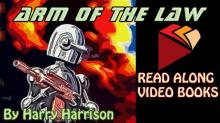 Arm of the Law
Arm of the Law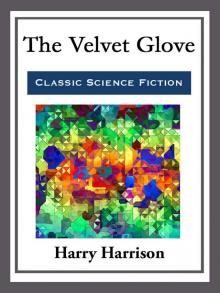 The Velvet Glove
The Velvet Glove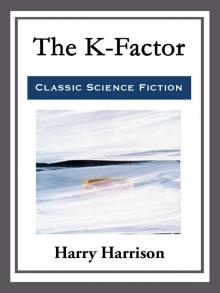 The K-Factor
The K-Factor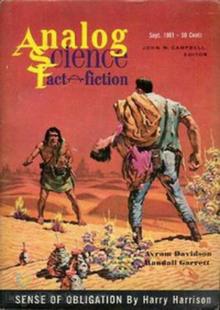 Sense of Obligation
Sense of Obligation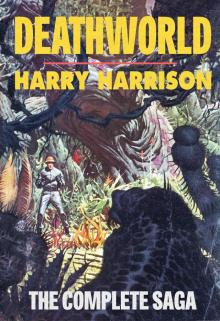 Deathworld: The Complete Saga
Deathworld: The Complete Saga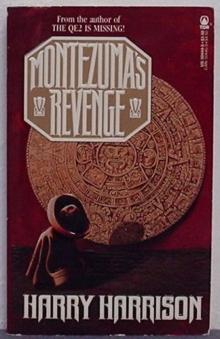 Montezuma's Revenge
Montezuma's Revenge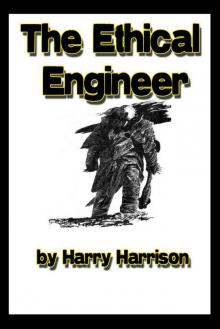 The Ethical Engineer
The Ethical Engineer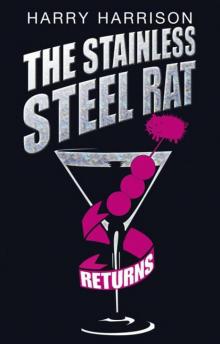 The Stainless Steel Rat Returns
The Stainless Steel Rat Returns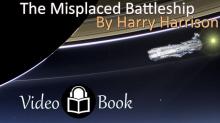 The Misplaced Battleship
The Misplaced Battleship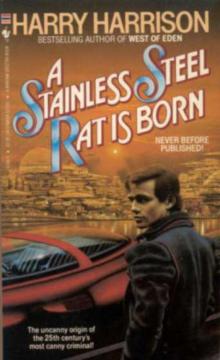 The Stainless Steel Rat is Born
The Stainless Steel Rat is Born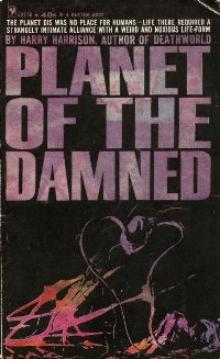 Planet of the Damned bb-1
Planet of the Damned bb-1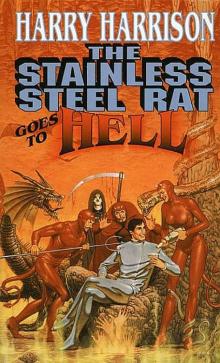 The Stainless Steel Rat Goes to Hell ssr-10
The Stainless Steel Rat Goes to Hell ssr-10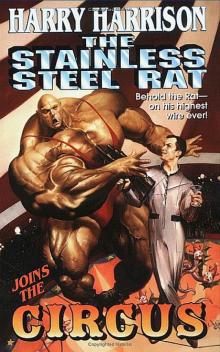 The Stainless Steel Rat Joins the Circus ssr-11
The Stainless Steel Rat Joins the Circus ssr-11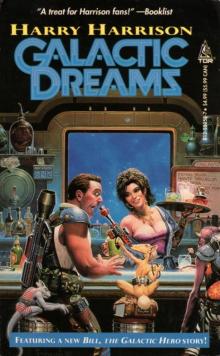 Galactic Dreams
Galactic Dreams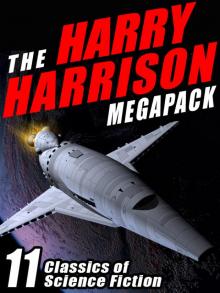 The Harry Harrison Megapack
The Harry Harrison Megapack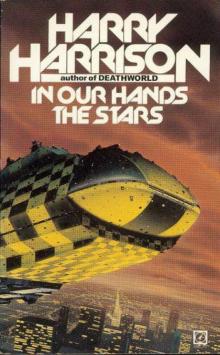 In Our Hands the Stars
In Our Hands the Stars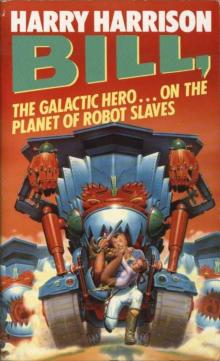 On the Planet of Robot Slaves
On the Planet of Robot Slaves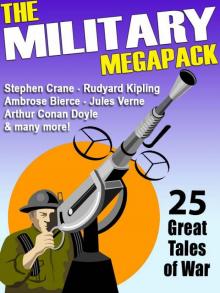 The Military Megapack
The Military Megapack Make Room! Make Room!
Make Room! Make Room!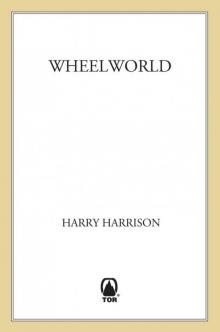 Wheelworld
Wheelworld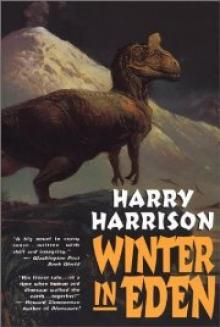 Winter in Eden e-2
Winter in Eden e-2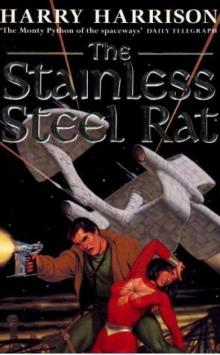 The Stainless Steel Rat
The Stainless Steel Rat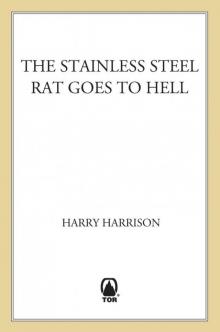 The Stainless Steel Rat Goes to Hell
The Stainless Steel Rat Goes to Hell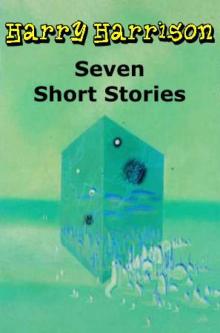 Harry Harrison Short Stoies
Harry Harrison Short Stoies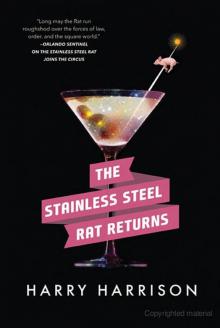 Stainless Steel Rat 11: The Stainless Steel Rat Returns
Stainless Steel Rat 11: The Stainless Steel Rat Returns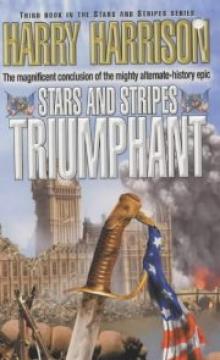 Stars and Stripes Triumphant sas-3
Stars and Stripes Triumphant sas-3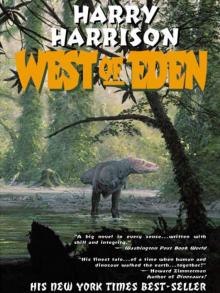 West of Eden
West of Eden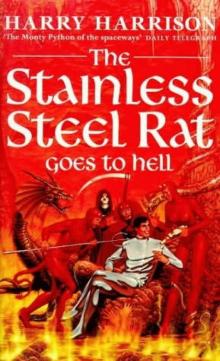 The Stainless Steel Rat Go's To Hell
The Stainless Steel Rat Go's To Hell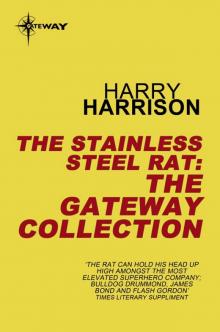 The Stainless Steel Rat eBook Collection
The Stainless Steel Rat eBook Collection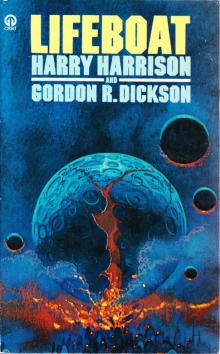 Lifeboat
Lifeboat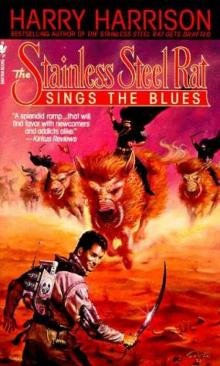 The Stainless Steel Rat Sings the Blues
The Stainless Steel Rat Sings the Blues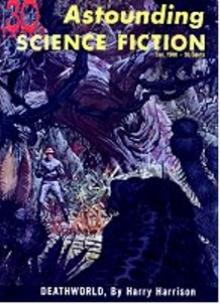 Deathworld tds-1
Deathworld tds-1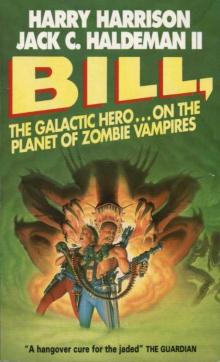 On the Planet of Zombie Vampires
On the Planet of Zombie Vampires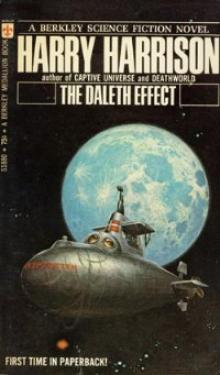 The Daleth Effect
The Daleth Effect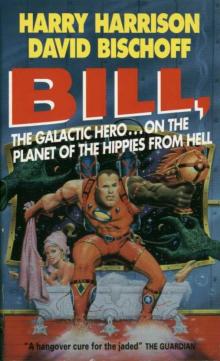 On The Planet Of The Hippies From Hell
On The Planet Of The Hippies From Hell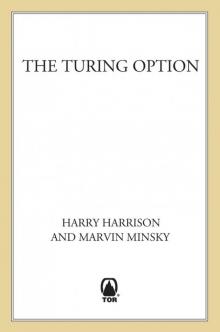 The Turing Option
The Turing Option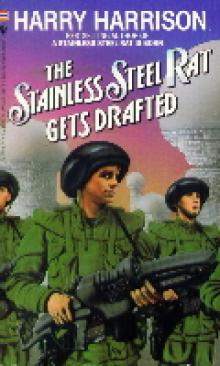 The Stainless Steel Rat Gets Drafted
The Stainless Steel Rat Gets Drafted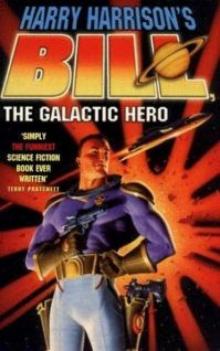 Bill, the Galactic Hero btgh-1
Bill, the Galactic Hero btgh-1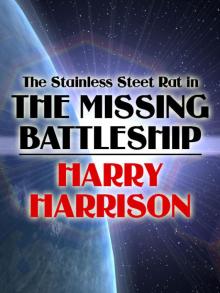 The Stainless Steel Rat in The Missing Battleship
The Stainless Steel Rat in The Missing Battleship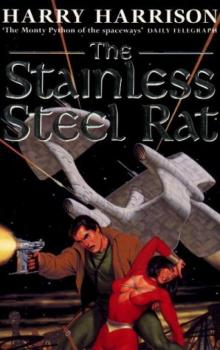 The Stainless Steel Rat ssr-1
The Stainless Steel Rat ssr-1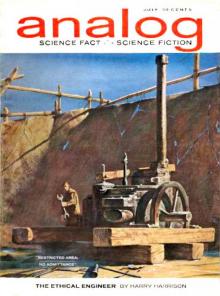 The Ethical Engineer (the deathworld series)
The Ethical Engineer (the deathworld series)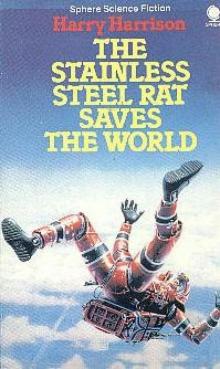 The Stainless Steel Rat Saves the World ssr-3
The Stainless Steel Rat Saves the World ssr-3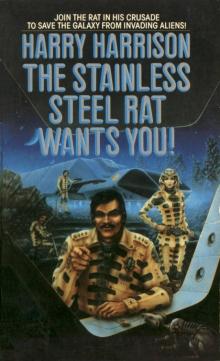 The Stainless Steel Rat Wants You
The Stainless Steel Rat Wants You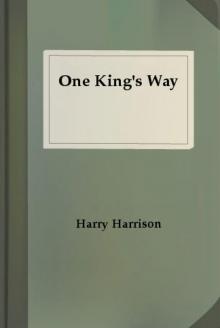 One King's Way thatc-2
One King's Way thatc-2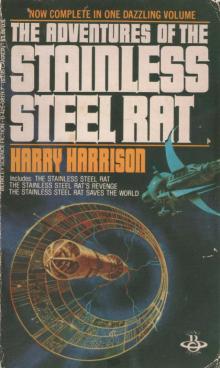 The Stainless Steel Rat Saves The World
The Stainless Steel Rat Saves The World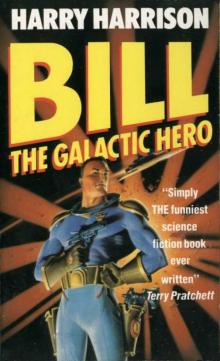 Bill, the Galactic Hero
Bill, the Galactic Hero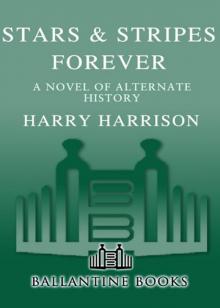 Stars & Stripes Forever
Stars & Stripes Forever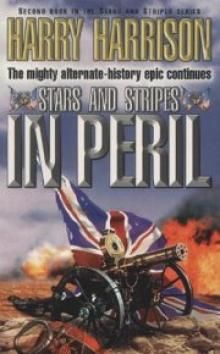 Stars and Stripes In Peril sas-2
Stars and Stripes In Peril sas-2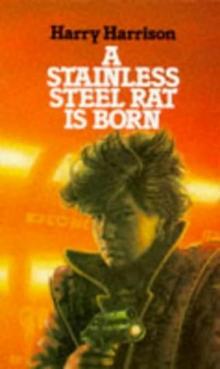 A Stainless Steel Rat Is Born ssr-6
A Stainless Steel Rat Is Born ssr-6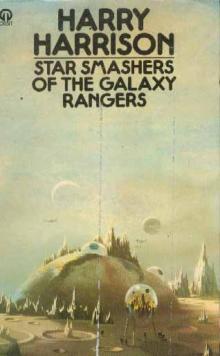 Star Smashers of the Galaxy Rangers
Star Smashers of the Galaxy Rangers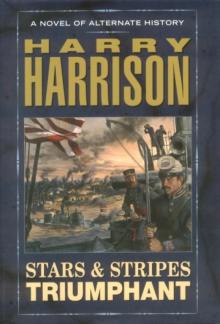 Stars & Stripes Triumphant
Stars & Stripes Triumphant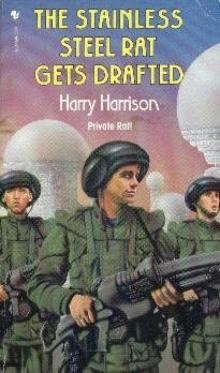 The Stainless Steel Rat Gets Drafted ssr-7
The Stainless Steel Rat Gets Drafted ssr-7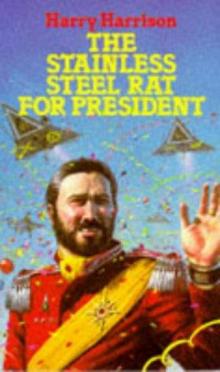 The Stainless Steel Rat for President ssr-5
The Stainless Steel Rat for President ssr-5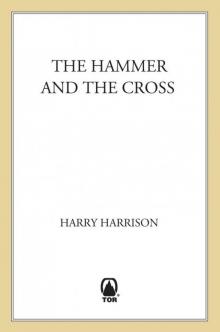 The Hammer & the Cross
The Hammer & the Cross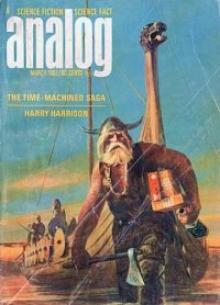 The Technicolor Time Machine
The Technicolor Time Machine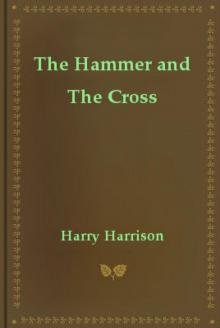 The Hammer and The Cross thatc-1
The Hammer and The Cross thatc-1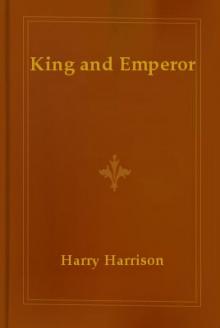 King and Emperor thatc-3
King and Emperor thatc-3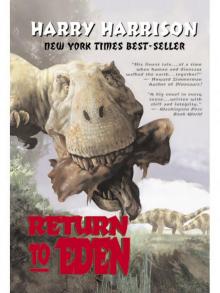 Return to Eden
Return to Eden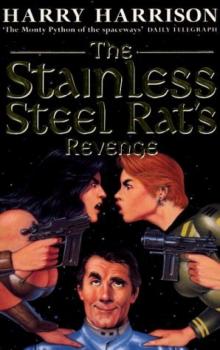 The Stainless Steel Rat’s Revenge ssr-2
The Stainless Steel Rat’s Revenge ssr-2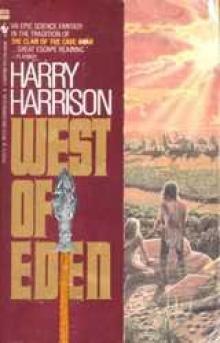 West of Eden e-1
West of Eden e-1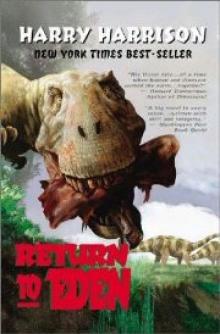 Return to Eden e-3
Return to Eden e-3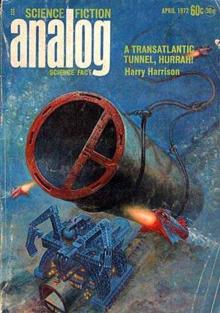 A Transatlantic Tunnel, Hurrah!
A Transatlantic Tunnel, Hurrah!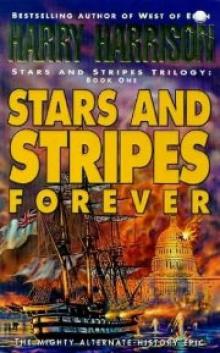 Stars and Stripes Forever sas-1
Stars and Stripes Forever sas-1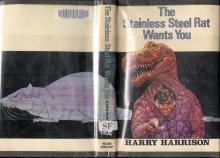 The Stainless Steel Rat Wants You ssr-4
The Stainless Steel Rat Wants You ssr-4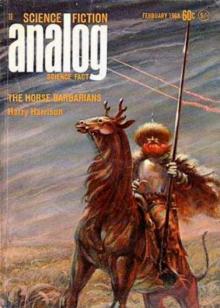 The Horse Barbarians tds-3
The Horse Barbarians tds-3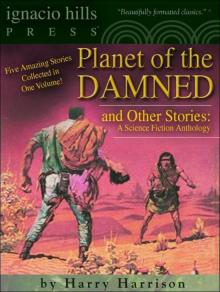 Planet of the Damned and Other Stories: A Science Fiction Anthology (Five Books in One Volume!)
Planet of the Damned and Other Stories: A Science Fiction Anthology (Five Books in One Volume!)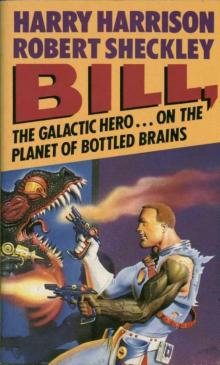 On the Planet of Bottled Brains
On the Planet of Bottled Brains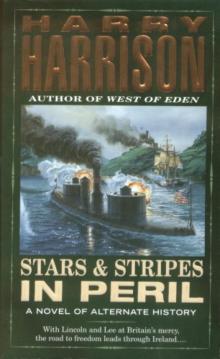 Stars And Stripes In Peril
Stars And Stripes In Peril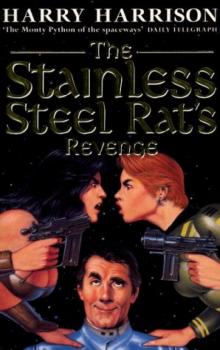 The Stainless Steel Rat's Revenge
The Stainless Steel Rat's Revenge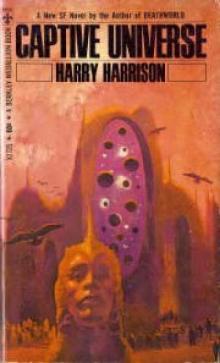 Captive Universe
Captive Universe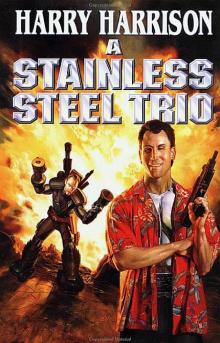 The Stainless Steell Rat Sings the Blues ssr-8
The Stainless Steell Rat Sings the Blues ssr-8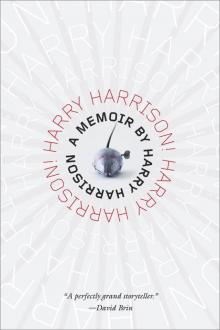 Harry Harrison! Harry Harrison!
Harry Harrison! Harry Harrison!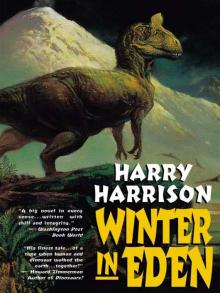 Winter in Eden
Winter in Eden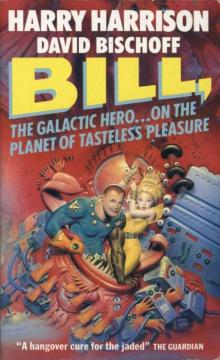 On the Planet of Tasteless Pleasures
On the Planet of Tasteless Pleasures